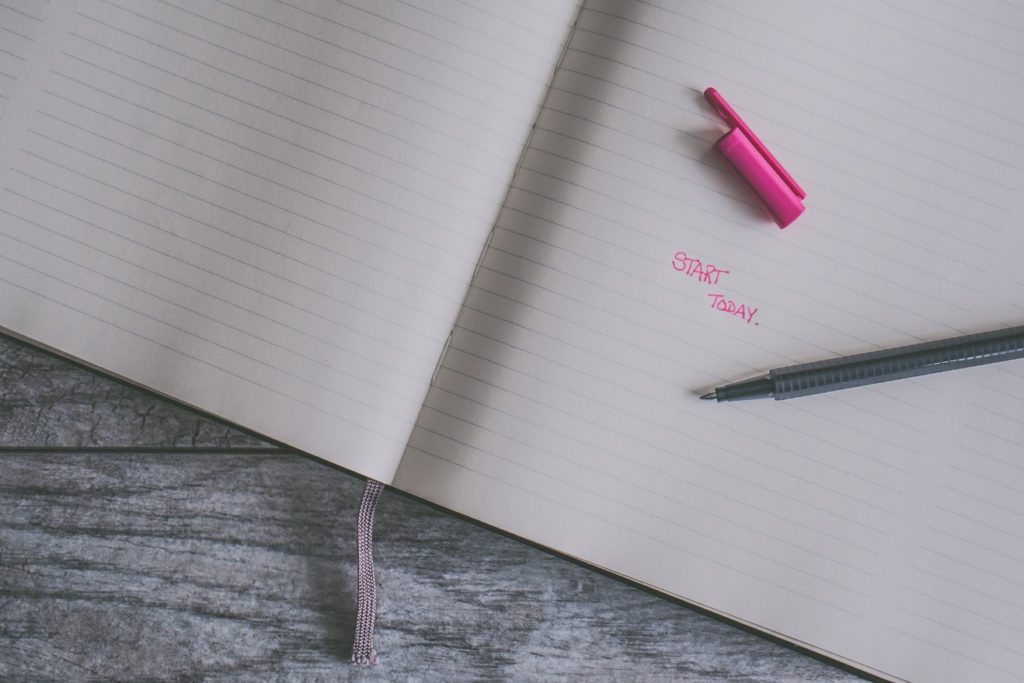Many of our beliefs, voices and ideas are not our own. It is up to us to investigate what we believe, why we believe it, and to discard the things that don’t serve our growth and happiness.
I like to think of all the noise and negativity and voices in the world akin to the dirt that must feel absolutely oppressive to a newly planted seed.
It can be uncomfortable for young minds to push against the psychic pressure of the world, but we couldn’t exist and grow without this pressure! This world of right and wrong, black and white, 1’s and 0’s – this is the world of duality, and the tension of duality allows us to Be; it allows us to Live!
We are a product of this world, yet we are meant to transcend it.
Those voices that shaped us are not who we are.

Our busy lives and schedules are not who we are.
There’s a proverb that says “You should sit in meditation for twenty minutes every day – unless you’re too busy. Then you should sit for an hour.” I know it’s unrealistic that you might have the hour every day, but if ten minutes isn’t giving you much progress, try to start your day with 20-30 mins a few times a week.
It’s also easier to mediate for longer in the mornings because the “too tired”, excuses that we might use are easier to avoid.
Meditating before sleep is not recommended, unless you are doing some sort of guided meditation to get you into a relaxed state and ready for sleep. Most meditation is to practice being mindful or alert, and sleeping right after doesn’t give you the most relaxing sleep.
WHile meditating before the night is not good. I’ve heard that it is normal when you’re first starting out to get drowsy, but that this goes away with practice. It is even the first stage in learning to meditate according to
Sufi tradition.
Muraqaba is the Sufi word for meditation which means “to watch over”, “to take care of”, or “to keep an eye”.
It implies that with meditation, a person watches over or takes care of his spiritual heart (or soul), and acquires knowledge about it, its surroundings, and its creator.
If you’re practicing mindfulness, then the morning is probably the best time to do it. You can also do what’s called in-breath meditation, which helps connect you to your higher bodies.
 Our busy lives and schedules are not who we are.
There’s a proverb that says “You should sit in meditation for twenty minutes every day – unless you’re too busy. Then you should sit for an hour.” I know it’s unrealistic that you might have the hour every day, but if ten minutes isn’t giving you much progress, try to start your day with 20-30 mins a few times a week.
It’s also easier to mediate for longer in the mornings because the “too tired”, excuses that we might use are easier to avoid.
Meditating before sleep is not recommended, unless you are doing some sort of guided meditation to get you into a relaxed state and ready for sleep. Most meditation is to practice being mindful or alert, and sleeping right after doesn’t give you the most relaxing sleep.
WHile meditating before the night is not good. I’ve heard that it is normal when you’re first starting out to get drowsy, but that this goes away with practice. It is even the first stage in learning to meditate according to Sufi tradition.
Our busy lives and schedules are not who we are.
There’s a proverb that says “You should sit in meditation for twenty minutes every day – unless you’re too busy. Then you should sit for an hour.” I know it’s unrealistic that you might have the hour every day, but if ten minutes isn’t giving you much progress, try to start your day with 20-30 mins a few times a week.
It’s also easier to mediate for longer in the mornings because the “too tired”, excuses that we might use are easier to avoid.
Meditating before sleep is not recommended, unless you are doing some sort of guided meditation to get you into a relaxed state and ready for sleep. Most meditation is to practice being mindful or alert, and sleeping right after doesn’t give you the most relaxing sleep.
WHile meditating before the night is not good. I’ve heard that it is normal when you’re first starting out to get drowsy, but that this goes away with practice. It is even the first stage in learning to meditate according to Sufi tradition.
 When I was working on getting into a better routine I read that it takes two full weeks for us to reset our sleep schedule. Then you need to work another week, so 21 days, before it becomes an actual habit. Otherwise you can easily drop it again.
My caffeine rule is not negotiable. For me I react really pretty sensitively to caffeine. But I guess it depends on the person. If you can sleep fine with a cup of tea or coffee in the afternoon it probably isn’t a big deal.
Also I skip screen time. Artificial blue light stimulates you as if it was a bright day and slows down melatonin secretion. For me this is worse than caffeine!
When I was working on getting into a better routine I read that it takes two full weeks for us to reset our sleep schedule. Then you need to work another week, so 21 days, before it becomes an actual habit. Otherwise you can easily drop it again.
My caffeine rule is not negotiable. For me I react really pretty sensitively to caffeine. But I guess it depends on the person. If you can sleep fine with a cup of tea or coffee in the afternoon it probably isn’t a big deal.
Also I skip screen time. Artificial blue light stimulates you as if it was a bright day and slows down melatonin secretion. For me this is worse than caffeine!  The biggest thing it has given me is that most of the time I can turn off most thought pretty easily. The peace and quiet is nice, and it helps me think better when I actually need to. The brain is part muscle just like any other body part. It took me a lot of regular meditation to really hone it down.
I started mediating two years ago and have been meditating off and on since then. When I first started I couldn’t close my eyes in a dark room for more than a few minutes, I thought something was going to come for me, I was a frightened and very paranoid person. For me this was the manifestation of my anxiety. The distance from my family and friends and the fact that I was alone came out when the lights were off.
It’s the first time I’ve ever observed my brain in action.
Since that time meditation has helped grow tremendously and made me realize where a lot of my misguided emotions were coming from.
It has brought me into a better place in my life. Meditation provides a much needed time for self-reflection.
Whether it was always pursuing a romantic relationship in an effort to replace a perceived void left by the absence of a parent’s affection or letting others take advantage of me emotionally.
In today’s world where we’re being pulled a hundred different ways, it’s nice to have some time to sit down and listen what’s going on within ourselves. It’s not all peaches and roses though.
I have bad days.
Even then, the skills you gain through meditation should help you there. Be aware of your emotions and thoughts, but try not to attach to them nor reject them.
The biggest thing it has given me is that most of the time I can turn off most thought pretty easily. The peace and quiet is nice, and it helps me think better when I actually need to. The brain is part muscle just like any other body part. It took me a lot of regular meditation to really hone it down.
I started mediating two years ago and have been meditating off and on since then. When I first started I couldn’t close my eyes in a dark room for more than a few minutes, I thought something was going to come for me, I was a frightened and very paranoid person. For me this was the manifestation of my anxiety. The distance from my family and friends and the fact that I was alone came out when the lights were off.
It’s the first time I’ve ever observed my brain in action.
Since that time meditation has helped grow tremendously and made me realize where a lot of my misguided emotions were coming from.
It has brought me into a better place in my life. Meditation provides a much needed time for self-reflection.
Whether it was always pursuing a romantic relationship in an effort to replace a perceived void left by the absence of a parent’s affection or letting others take advantage of me emotionally.
In today’s world where we’re being pulled a hundred different ways, it’s nice to have some time to sit down and listen what’s going on within ourselves. It’s not all peaches and roses though.
I have bad days.
Even then, the skills you gain through meditation should help you there. Be aware of your emotions and thoughts, but try not to attach to them nor reject them.